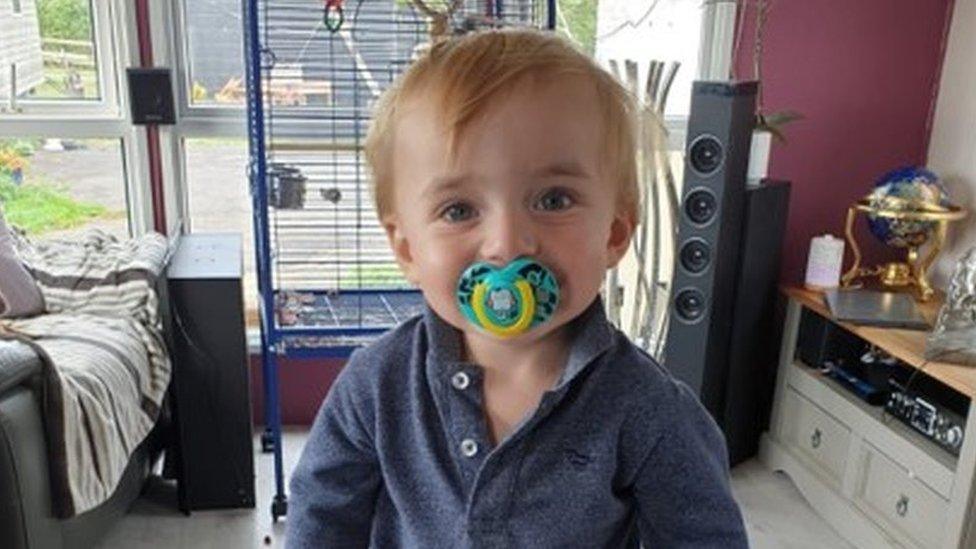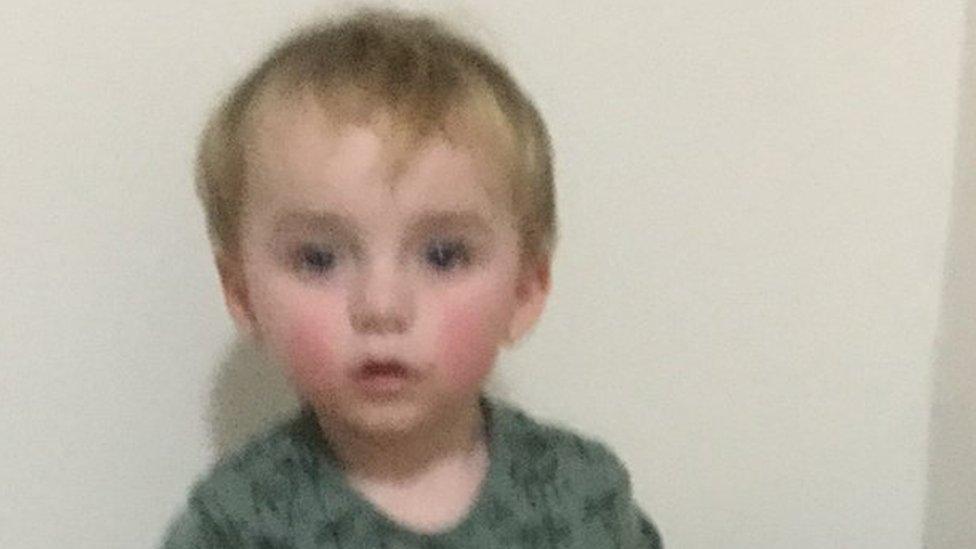Alfie Phillips murder trial: Murder accused asked paramedic 'what have I done?'
- Published

Alfie Phillips had 70 visible injuries but a post-mortem revealed more, jurors have heard
A man accused of killing his partner's 18-month-old son during lockdown said to a paramedic "what have I done" when he was pronounced dead, jurors heard.
Alfie Phillips died on 28 November 2020 with multiple bruises and fractures, Maidstone Crown Court has been told.
His mother Sian Hedges, 27, and her former partner Jack Benham, 35, deny murdering the boy in a caravan in Kent.
Ambulance paramedic Lucy Goddard said when she arrived it was obvious the toddler had died a few hours before.
Ms Hedges, of Yelverton, Devon, and Mr Benham, 35, are accused of killing Alfie overnight in Benham's caravan in Hernhill, near Faversham.
Jurors have heard he died with over 70 visible wounds - including human bites marks - and many more internal injuries.
Ms Goddard said CPR was being given to Alfie by a colleague when she arrived on 28 November, but he was "noticeably blue, his legs a bit purple".
"It was very obvious to me that he had died a few hours before," she said.
Broken bones
She said she noticed bruising around Alfie's mouth but when she took over CPR "I had my eyes closed as I was quite emotional and I was concentrating".
Ms Hedges was "screaming and distressed" at the hospital, when she heard Alfie had died, Ms Goddard said.
The court heard Ms Hedges collapsed, retching, and grabbed Mr Benham around the waist, crying.
Mr Benham walked outside followed by the paramedic, the court heard.
Ms Goddard said he was shaking his head, and was saying: "What have I done?"

Alfie's mother Sian Hedges and Jack Benham deny murder
Bone expert Professor David Mangham said Alfie suffered two dozen fractures to his arms, legs, feet, ribs and sternum in the hours before he died.
His bones had been crushed and shattered, he said, adding it would have taken "a squeezing or a gripping to generate that sort of high degree of fragmentation".
He said bones were more pliable in a young child, so a high level of force would have been applied.
Asked by Jennifer Knight KC, prosecuting, how the fractures were caused, Prof Mangham said the high number of fractures, their distribution and the different times they occurred "indicate non-accidental injury".
The trial continues.

Follow BBC South East on Facebook, external, on Twitter, external, and on Instagram, external. Send your story ideas to southeasttoday@bbc.co.uk.
- Published18 October 2023

- Published12 October 2023

- Published5 October 2023

- Published4 October 2023
